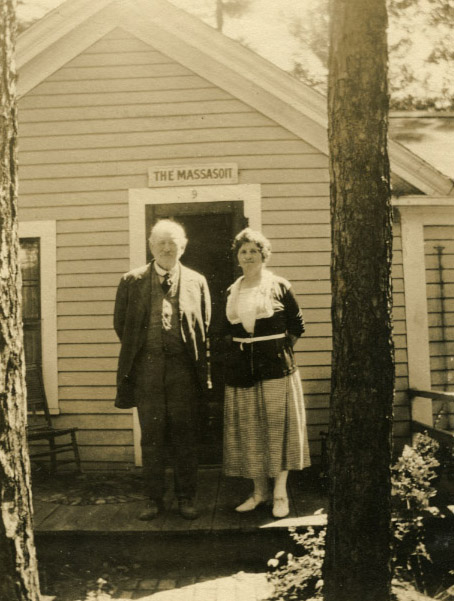Holyoke Co-operative Bank Collection
1908-1971 Bulk: 1940-1970
13 9 linear feet
Call no.: MS 1123
Holyoke Co-operative Bank was the third bank organized in Holyoke during the boom years of the 1870s and1880s. It was organized on July 24, 1880 and was the third bank organized there by E. L. Munn. The bank was located at 243 High Street in 1919 and 319 Appleton St. in 1951. In 1971, the bank merged with Community Savings Bank, which was a combination of Chicopee-Falls, Mechanics, and Springfield Five Cent Savings Banks. In 1988, Community merged with Heritage Bank to become the largest bank in Western Massachusetts. Heritage failed in 1992 and was taken over by Fleet Bank.
The collection here, which was acquired from the Holyoke History Room and Archives at the Holyoke Public Library in 2020, consists mostly of cash journals from the late 1920s to the late 1960s. There is also one box of Board of Investment minutes and shareholder lists. The collection originally resided at the Springfield History Library & Archives, who most likely acquired it after the bank had merged with Community Savings Bank in 1971, since the material in the collection ends in 1970.
For more information on the merger see:
Piccin, N. (1992, December 6). Heritage failure brings to close 158 years of WMass banking. Sunday Republican (Springfield, MA), A26.
Inventory
Box #
|
Description
|
Dates
|
| Box 1 (record storage box) |
Record of share withdrawals
Board of Investment minutes
Shareholders
Shareholders
Proof of Certificates |
1951-1970
1953-1970
1940-1960
1963-1970
1943-1960 |
| Box 2 (16″x20″ oversize box) |
Transferred cash journal
Real estate journal |
1941-1943
1940-1941 |
| Box 3 (16″x20″ oversize box) |
Cash journal |
1948-1957 |
| Box 4 (16″x20″ oversize box) |
General ledger |
1970-1971 |
| Box 5 (16″x20″ oversize box) |
Cash journal
Cash journal |
1927-1930
1931-1933 |
| Box 6 (16″x20″ oversize box) |
Cash journal |
1935-1937 |
| Box 7 (16″x20″ oversize box) |
Cash journal |
1960-1962 |
| Box 8 (16″x20″ oversize box) |
Cash journal |
1963-1965 |
| Box 9 (16″x20″ oversize box) |
Cash journal |
1965-1968 |
| Box 10 (16″x20″ oversize box) |
Cash journal |
1968-1970 |
| Box 11 (16″x20″ oversize box) |
Shareholder ledger |
1928-1932 |
| Box 12 (16″x20″ oversize box) |
Transferred cash journal
Cash journal |
1937-1941
1958-1959 |
| Box 13 (16″x20″ oversize box) |
Shareholders ledger
Collateral transfers |
1927
1908-1934 |
Acquired from Eileen Crosby, Holyoke History Room & Archives, December, 2020
Subjects
Banks and banking, CooperativeCommunity banksFinancial executivesFinancial institutions--Holyoke, Mass.Types of material
cashbooksledgers (account books)minutes (administrative records)
Restrictions: none


